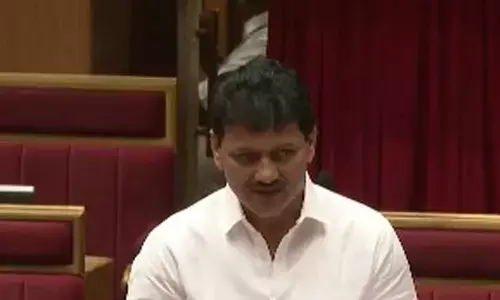Indians bear brunt of Nigerian murder in Goa

Indians Bear Brunt Of Nigerian Murder In Goa. The chaos triggered by the brutal murder of 35-year-old Nigerian Simeon Obobo, allegedly by a rival drug mafia in Goa, and the subsequent arson has died out.
Panaji: The chaos triggered by the brutal murder of 35-year-old Nigerian Simeon Obobo, allegedly by a rival drug mafia in Goa, and the subsequent arson has died out. But far away, in the oil-rich Nigerian state of Imo, home to a large chunk of Indian energy industry professionals, it's still creating ripples.
When the body of Obodo, who was murdered in October, finally landed and was secured in a morgue in the neighbouring Rivers State, it was amidst an atmosphere of despondence within the family and anger amidst the Ohaji Egbemas, a powerful community in Imo, who have openly warned retribution against the Indian community there.
Speaking to IANS via telephone Ejike Esinkonye, Obodo's kin, said both the Indian and Nigerian national governments had let down the family.
"The Indian government has not said or done anything to show remorse over such an ugly situation. The Nigerian foreign affairs ministry has made its position known to India, which includes bringing the body back to Nigeria and according him a decent burial. The government of India has reneged and failed to do it," Esinkonye said, adding that the Nigerian government did not push the Indian authorities enough to do so.
"The Federal Government promised to draw the attention of the Indian government to this and see what can be done but up till now, nothing has been done," he added.
The legal, funeral, mortuary and flight expenses alone cost Obodo's family nearly 6.5 million nairas ($40,000), which was borne after selling of family property by the deceased's mother, wife and son.
Obobo's murder has been dubbed as the handiwork of a Goan drug-running gang by the local police, who despite having arrested over half a dozen people in connection with the murder, have also been accused of turning a blind eye to politically supported big drug dealers, who allegedly orchestrated the killing.
While Obodo - as well as his Nigerian compatriots who started a messy riot following the murder - has been referred to in police briefings as one having affiliations to Nigerian drug dealers, Esinkonye claims that he was a member of the respected clan of Imo's Ala Nwaku priests.
"My family is in pain, my community is in pain over the death of one of the brightest and they should not expect us to bear this pain alone. Simeon Obodo was a bona fide law-abiding Nigerian before he was murdered in India," Esinkonye claimed.
Esinkonye also led a delegation of Imo's Ohaji Egbema community to meet Nigerian Foreign Affairs Minister Viola Onwuliri in capital Abuja last month to take up Obodo's issue as well as to convey the anger of his community against the murder and the subsequent arrest of nearly 50 Nigerians for arson and rioting. Over 40 were later released on bail.
"Our youngsters are very angry. While our Simeon has died and our countrymen were jailed, Indians are working in Imo and they are walking about freely," Esinkonye told IANS.
Esinkonye's veiled threat is a grim reminder of the open threat issued by Nigerian diplomats in India who had warned of retribution against Indians in the African country, if the Goa government did not stop racial discrimination.
Rich in crude oil and natural gas, Imo has several thousand Indians living within its jurisdiction, apart from the flourishing Indian expat community living there.
"In recent years, Nigeria has been one of the main sources of crude for India. Nigeria is highly important for our energy security as we import around eight percent to 12 percent of our crude requirements from Nigeria," the Indian High Commission said in a statement last month.
Apart from trade in hydrocarbons, Indian presence has arrived at a critical threshold of participation in Nigeria's upstream sector and refining, it added. Bilateral trade, which peaked at $17.3 billion in 2011-12, dipped slightly to $16.8 billion in 2012-13 and efforts are being made to increase this to its previous levels.
Next Story










